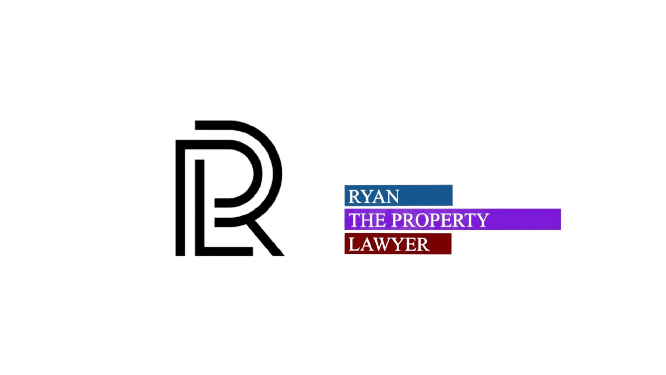Legal Considerations for Real Estate Development Projects & Real estate development can be an exciting endeavour, but developers must also navigate a number of legal considerations. From obtaining the proper zoning approvals to administering construction contracts, it is essential to comprehend the legal aspects of real estate development projects for a successful and compliant undertaking. In this article, I will examine the most important legal considerations that Toronto developers must be aware of, from zoning regulations to the construction phase.
Land Use and Zoning Regulations
Zoning and land use regulations are a primary legal consideration in real estate development initiatives. Zoning regulations outline the permitted uses, building heights, setbacks, and density restrictions for land within a specific area. It is essential to comprehend and adhere to these regulations to ensure that the proposed development conforms to the zoning requirements.
investigating the zoning requirements
Before commencing a real estate development project, developers must conduct research and gain an understanding of the property’s and location’s zoning requirements. This includes examining zoning regulations and consulting with local planning authorities to determine permitted uses, building codes, and other restrictions. It is essential to ensure from the beginning that the proposed undertaking meets these requirements.
Inquiring about Zoning Approvals and Variances
In some cases, a real estate development endeavour may require zoning approvals or variances. Typically, this occurs when the proposed development does not comply with the current zoning regulations. In order to show that the proposed project is in line with the community’s interests and won’t significantly negatively affect the neighbourhood, developers may be required to submit applications and present their case to the right authorities.
Learning to Navigate Development Agreements
In certain circumstances, developers may be required to enter into development agreements with the municipality or other project parties. These agreements stipulate the developer’s conditions, responsibilities, and obligations in exchange for the required approvals. It is crucial to thoroughly evaluate and negotiate these contracts to ensure that all legal considerations are addressed and the developer’s rights and interests are safeguarded.
Considerations for the Environment
Additionally, real estate development initiatives must consider environmental factors and adhere to environmental regulations. Protecting the environment and mitigating potential impacts on natural resources is not only required by law but is also essential for sustainable and accountable development.
Environmental Evaluations and Reconstruction
Before beginning a development project, it is essential to execute exhaustive environmental assessments to identify any environmental hazards and liabilities that may be associated with the property. This may involve evaluations of soil quality, groundwater contamination, or the presence of hazardous substances. If environmental issues are identified, developers are obligated to remediate them in accordance with environmental regulations.
the observance of environmental regulations
Real estate development initiatives must adhere to numerous environmental regulations, including those regulating air and water quality, waste management, and natural resource conservation. To ensure environmental sustainability and avoid legal repercussions, developers must comprehend and adhere to these regulations throughout the project.
Building Agreements and Liability
Multiple stakeholders are involved in the construction phase of a real estate development endeavour, including contractors, subcontractors, and suppliers. Managing construction contracts and confronting potential liabilities are crucial aspects of real estate development projects’ legal considerations.
Contracts for Construction are negotiated.
Developers must negotiate and compose construction contracts with great care to ensure that the terms and conditions are transparent, equitable, and protect their interests. These contracts should address the project’s scope, timelines, payment schedules, warranties, insurance requirements, and mechanisms for resolving disputes. Engaging a qualified construction lawyer can assist developers in navigating the complexities of contract negotiation and ensuring that their rights and responsibilities are appropriately addressed.
Taking Care of Construction Liabilities
During the construction phase, numerous liabilities, such as delays, defects, and catastrophes, may arise. Developers must be aware of their obligations and liabilities and have mechanisms in place to address potential problems. To minimize the risk of construction-related liabilities, this may involve procuring the proper insurance coverage, conducting routine inspections, and implementing quality control measures.
Risk management and financing
Real estate development initiatives often involve significant financial investments. Legal considerations for developers include managing financing and mitigating financial risks.
Obtaining Finance
Financing for their initiatives must be secured from traditional lenders, private investors, or government programs. This entails negotiating loan agreements, examining financing terms, and ensuring adherence to financial regulations. Real estate lawyers can aid developers in navigating the financing process, safeguarding their interests, and ensuring legal compliance.
Insurance and Risk Management
The hazards associated with real estate development initiatives must be recognized and managed by developers. This may involve market conditions, construction delays, unanticipated expenses, and legal liabilities. These risks can be mitigated and the developer’s financial interests protected by implementing effective risk management strategies and obtaining adequate insurance coverage.
Conclusion
Real estate development initiatives in Toronto require developers to address a multitude of legal considerations to ensure compliance and success. Developers must navigate a complex legal landscape, from comprehending and complying with zoning regulations to administering construction contracts and mitigating financial risks. Engaging a qualified real estate lawyer can provide invaluable assistance and direction throughout the development process. By comprehending and addressing these legal considerations, developers can confidently navigate the complexities of real estate development projects, ensuring compliance and maximizing their chances of success.
Author Profile

Latest Blog
 Uncategorised22 December 2023What Constitutes a Legal Partnership in Ontario?
Uncategorised22 December 2023What Constitutes a Legal Partnership in Ontario? Uncategorised22 December 2023Characteristics of a Corporation in Ontario
Uncategorised22 December 2023Characteristics of a Corporation in Ontario Uncategorised22 December 2023Intentions Matter When Co-Owning Property
Uncategorised22 December 2023Intentions Matter When Co-Owning Property Uncategorised22 December 2023Consequences of Operating an Ontario Partnership
Uncategorised22 December 2023Consequences of Operating an Ontario Partnership




